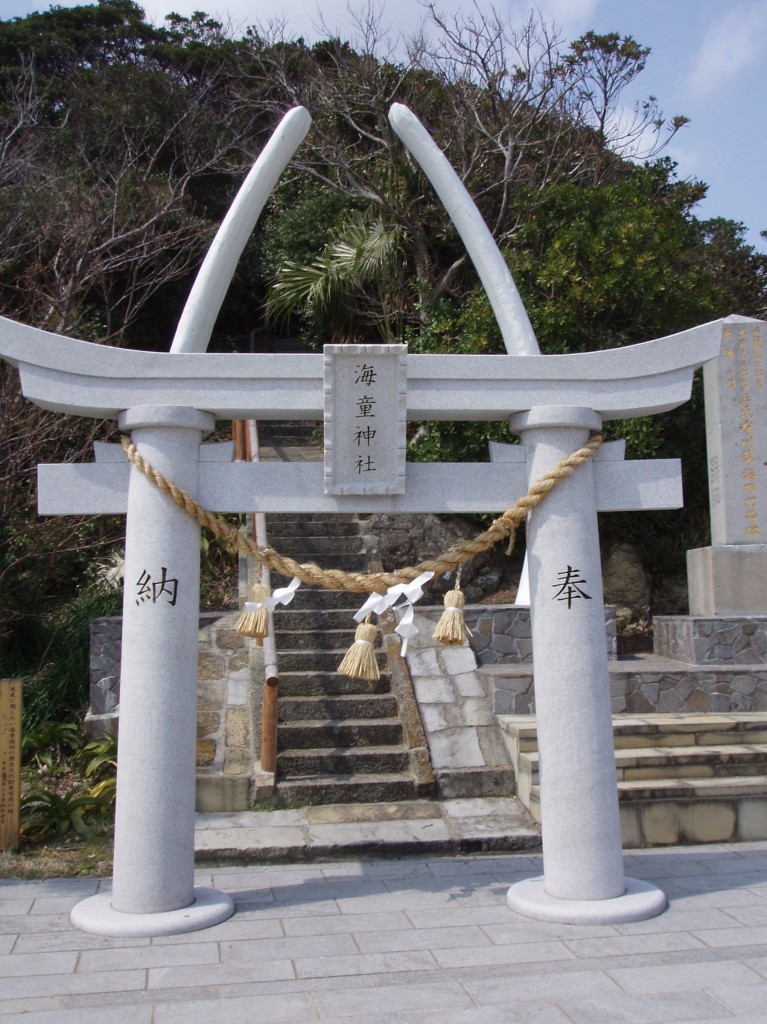Environmentalists within Japan and abroad are celebrating the decision today by the International Court of Justice in The Hague which ordered a temporary halt to Japan’s Antarctic whaling program, ruling that it is not for scientific purposes as had been claimed. Established in 1945, the ICJ is the UN’s highest judicial body; its judgements are binding and cannot be appealed.

A shrine for the safety of whalers on Goto Island near Kyushu, put up at a time when ‘traditional whaling’ was a highly dangerous occupation carried out in local waters, not in the distant Antarctic by modern factory ships
A report by Andrew Darby in The Australian states that the court case was initiated in 2010. “The case began as tortuous diplomatic negotiations for Japan to phase out its Antarctic hunt broke down in the International Whaling Commission. But a series of opinions by legal expert panels gathered by international wildlife conservation groups encouraged the then environment minister, Peter Garrett, who argued strongly inside the Rudd government for taking on Japan, WikiLeaks documents showed.
When the case came to the Hague last June, it hinged on the court’s view of the IWC convention’s clause letting a member nation conduct its own scientific whaling program, despite a global moratorium on commercial whaling.
The Australian government’s counsel, Bill Campbell, QC, told the 21 judges they had an important opportunity to decide for the world what did, and did not, constitute scientific activity. “In short, Japan seeks to cloak its ongoing commercial whaling in the lab coat of science,” Mr Campbell said.
A recent article in Japan Today pointed out that, quite apart from any ethical issues, the meat for which the whales are hunted is not commercial in any sense. Not only is the operation heavily subsidised by tax-payers (even by underhand means, as described below), but the meat is for the most part unwanted, with supplies mounting ever higher.
“The amount of whale meat stockpiled for lack of buyers has nearly doubled over 10 years, even as anti-whaling protests helped drive catches to record lows. More than 2,300 minke whales worth of meat is sitting in freezers while whalers still plan to catch another 1,300 whales per year.
Initially, the government injected about 500 million yen ($5 million) a year into the program, or about 10 percent of its costs. By 2007, the subsidy had grown to about 900 million yen ($9 million), and is projected to exceed 5 billion yen ($50 million) for the current fiscal year ending in September.
In 2011, the Ministry of Agriculture, Forestry and Fisheries used an earthquake and tsunami disaster reconstruction fund to help cover whaling debts. The ministry later acknowledged funneling 2.3 billion yen ($23 million) of the fund into whaling, triggering public outcry.”
The decision is good for whales. It’s good for the Antarctic. And it’s good for those of us in Japan paying tax.
And what is Shinto’s position on this ‘green issue’? Despite the assertions by nature lovers in the West that Shinto is concerned with the environment, the authorities are firmly in favour of whaling. Jinja Shinpo, the semi-official organ controlled by Jinja Honcho, carries an article stressing ‘The importance of Shinto priests taking a stand in favour of whaling and against animal rights.’ (See here.)

Leave a Reply